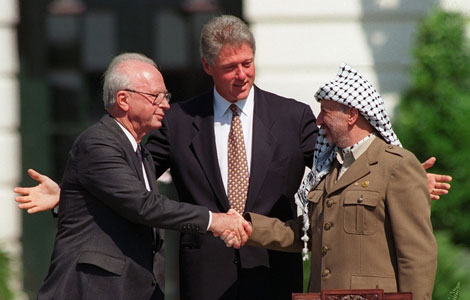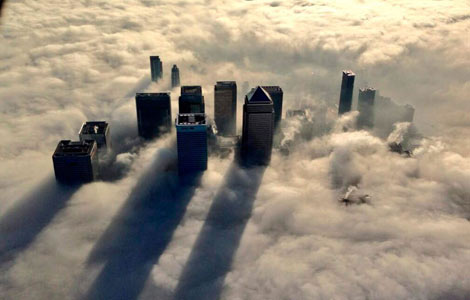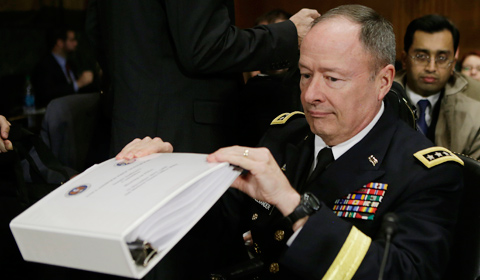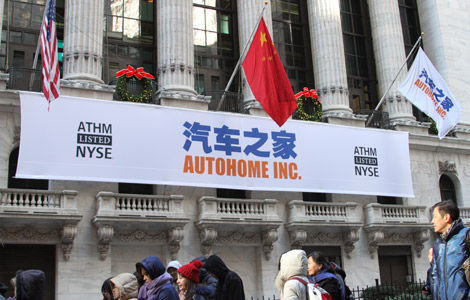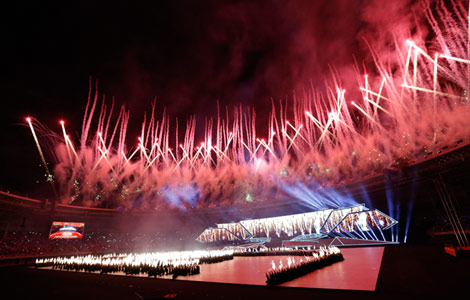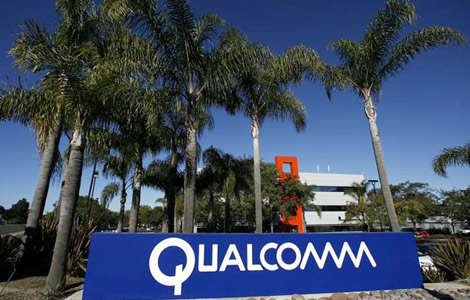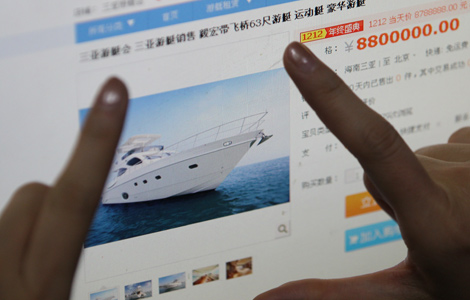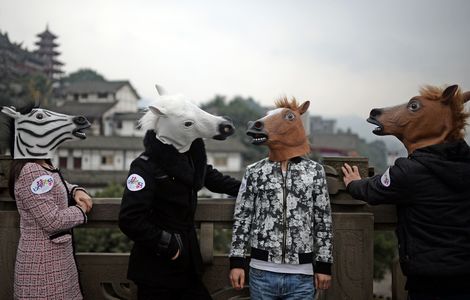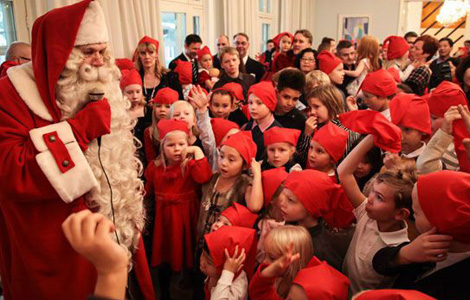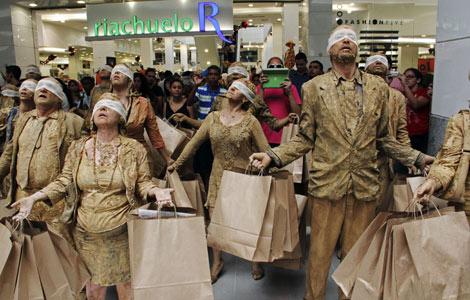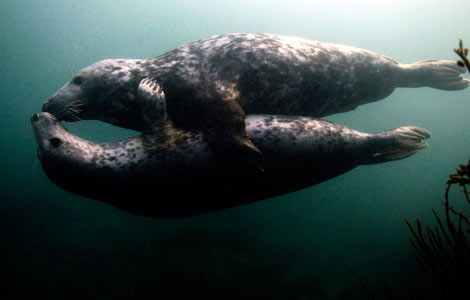Asiana 214 crash hearing delayed
Updated: 2013-12-11 04:48
By CHEN WEIHUA in Washington and CHEN JIA in San Francisco (China Daily USA)
|
||||||||
The snow storm that hit Washington DC on Tuesday caused the National Transportation Safety Board (NTSB) to postpone its planned two days of hearings on the July 6 crash landing of Asiana Flight 214 at San Francisco International Airport.
The crash of the South Korean air carrier's Boeing 777, which happened in good weather conditions, caused three deaths, all female Chinese teenagers, and the injuries of 181 passengers. While two of the teenagers died from crash-related injuries, the third, 16-year-old Ye Mengyuan, was killed when a San Francisco rescue vehicle ran her over while she lay on the runway outside of the plane.
The postponement of the hearing was announced just hours before it was scheduled to start at 9 am on Tuesday. The storm turned out to be not as bad as expected, as the sun came out in the afternoon.
The NTSB has arranged for a live webcast of the hearings, and will be available in both Chinese and Korean as well.
Testifying witnesses will include representatives of the Federal Aviation Administration, Boeing, Asiana Airlines, the Korean Office of Civil Aviation and the International Federation of Airline Pilots' Associations Commercial Air Safety Team. They will answer questions from NTSB board members, technical staff and other parties.
The NTSB said the hearing would focus on pilot awareness in highly automated aircraft, emergency response and cabin safety.
The hearing will not determine the exact cause of the accident but is likely to narrow the scope of further investigation.
"This is just an investigative hearing to gather information," Keith Holloway, an NTSB spokesman, told the media. "The idea is to help us narrow things down."
"We will look at every aspect of the accident, and we can't focus on any one particular thing at this point," he said.
There has been plenty of finger pointing already. Some believe the four South Korean pilots had operated the aircraft with too much dependence on the automatic piloting system. Asiana, on the other hand, reportedly told the NTSB earlier this year that some type of anomaly or malfunction prompted the auto-throttles to stop functioning, though subsequent investigation found no malfunctions that affected the engines, auto-throttles or other onboard systems prior to impact.
Asiana announced last week that it had hired Akiyoshi Yamamura, a former safety specialist at Japan's All Nippon Airways, to head the company's safety program. Yamanura has said that he will take a more proactive approach to training in safety procedures.
Several lawsuits against Asiana and Boeing have been filed in the past five months.
Brian Alexander, a partner at Kreindler & Kreindler, told China Daily that he expects the NTSB to cover a number of important safety issues concerning pilot conduct on the flight and training, as well as the autopilot and auto-throttle.
"We also expect them to address the rescue effort and aircraft evacuation. As always we are hopeful the NTSB will ultimately make safety recommendations that will prevent tragedies like this crash from happening again," said Alexander, who has handled many flight accident cases and had come to Washington DC for the hearing.
Floyd Wisner, the principal of Chicago-based Wisner Law Firm, said he believes the NTSB will conduct a comprehensive investigation.
"It is important to the victims of this flight that all causes of this crash be identified and remedied so that such an event does not occur again," said Wisner, an aviation crash attorney.
He said new information surrounding the crash highlights the danger of jumping to premature conclusions about the causes of air disasters. Wisner warned in July that it was too early to claim pilot error alone caused the accident, adding that air crashes are usually the result of a series of events.
"Crashes of this nature often include both an operational error and a mechanical failure," he said.
He said that while passengers on the flight may have an action against the air carrier Asiana, limitations under the international "Montreal Convention" treaty mean this compensation will be limited.
"We believe passengers may also have an action against the aircraft manufacturer, Boeing," he said. "A viable action against Boeing may be their only reasonable hope of obtaining fair recompense for their physical and psychological injuries."
The Boeing 777 that crash landed had 307 people on board, including 16 crew members and 141 Chinese citizens. More than 90 of them took Asiana Airlines Flight 362 from Shanghai Pudong International Airport and connected to Flight 214 at Incheon, South Korea.
The Chinese passengers included 70 students and teachers from schools in Zhejiang and Shanxi provinces who were travelling to the US for summer camps.
Contact the writers at chenweihua@chinadailyusa.com and chenjia@chinadailyusa.com
Most Viewed
Editor's Picks

|

|

|

|

|
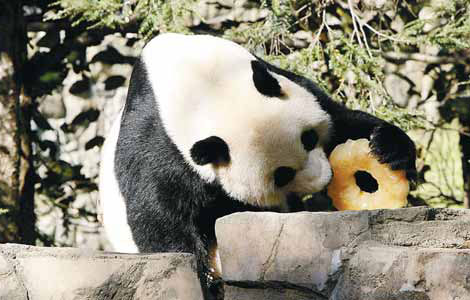
|
Today's Top News
Lee named head of Patent Office
Chinese car maker provides jobs in US
NSA: surveillance best way to protect US
Explose bank loan rise may spark tightening of credit
'Containing China' Japan's strategy
Pilots must qualify to land in haze
Talent plan to unleash creativity
Perks targeted in anti-graft drive
US Weekly

|

|
